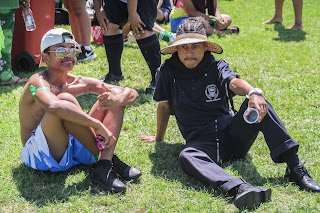Behaviour Management

I have spent a number of years running workshops for & mentoring PRTs now PCTs. Behaviour Management was always the thing that they struggled with in their first year. The answer is always in developing learning-focused relationships. The PCTs have been attending PLD on Positive Behaviour for Learning run by the local RTLB Service. Following are some great diagrams on de-escalating behaviour in the classroom. The big question - how do your actions escalate or de-escalate the situation. Generally, if the teacher remains calm, the class will remain calm & vice versa.





